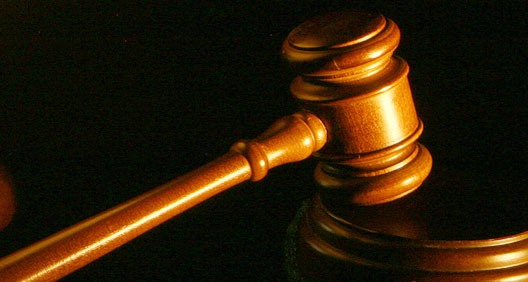Schedule a Consultation
What Is the Difference Between Homicide, Murder, and Manslaughter in Texas?

Facing criminal charges of any kind can be a life-changing experience, and the penalties for taking another life are some of the most severe that may be assigned under state law. The terms homicide, murder, and manslaughter are often used interchangeably, but the reality is that all three of these terms have specific meanings in criminal law that indicate different levels of offense. If police accuse you of taking another person’s life, this would mean you face a homicide case. The specific of the offense determines whether the homicide qualifies as murder or manslaughter.
Defining Homicide Charges
“Murder” is the term used to indicate an intentional and planned killing of another person. There are several types of murder charges, and any intentional killing is likely to lead to a felony conviction and long-term incarceration in state prison. “Manslaughter” denotes that a person has caused the death of another person, but they may not have intended to cause the death and/or harm the victim at all. Accidental deaths that occur from negligence may qualify as manslaughter.
It’s possible for a prosecutor to seek a more serious charge at first and then for more facts to come to light that call motive, intent, and other details into question. When you or a loved one is charged with any type of homicide, it is vital to exercise your right to legal counsel immediately after an arrest. The sooner you secure legal representation, the more time your attorney has to work on your defense.
Potential Defenses When Faced With a Homicide Conviction
In every criminal case in the United States, the prosecution must prove the defendant’s guilt beyond a reasonable doubt. They accomplish this by leveraging material evidence and witness testimony, and the defendant’s defense attorney strives to prevent them from meeting their burden of proof.
Your defense attorney may attempt to call the credibility and/or admissibility of the prosecution’s evidence and witness testimony into question. You could also submit contradictory evidence to establish a defense. For example, an alibi can prove you could not have committed the offense in question because you were somewhere else. You may also have evidence that proves you did not intend to harm or kill the victim, potentially sparing you from murder charges.
Ultimately, the best strategy for anyone facing any type of homicide charge is to secure defense counsel as quickly as possible. The right criminal defense attorney can help you approach your case with greater confidence and help you prove your innocence or at least minimize the penalties you face.
Civil Liability for Homicide
When one person causes an injury and/or economic loss to another party, this is a personal injury, and the victim has the right to file a civil claim against the defendant to seek compensation for their losses. However, if the victim dies, the victim’s family would have cause to file a wrongful death claim against the defendant. Even if you manage to avoid prosecution for murder, you could still face a manslaughter charge and liability for wrongful death.
A wrongful death claim seeks funeral and burial expenses for the deceased along with reasonable compensation for the lost financial support provided to the family and the family’s pain and suffering. Punitive damages can also come into play; it depends on the severity of the defendant’s behavior. A defendant convicted of homicide in relation to a wrongful death is also likely to face restitution as part of their sentence. Ultimately, any homicide case that leads to civil action from the victim’s family is much easier to endure with the right attorney on your side.
FAQs About The Difference Between Homicide, Murder, and Manslaughter
What Is the Most Likely Penalty for a Homicide Charge?
If the facts of your case prove that your actions directly caused the death in question, at a bare minimum, you will face civil liability for the negligence or misconduct that resulted in the death. You will only face a murder charge if the prosecution has evidence that you planned to kill the victim or otherwise acted with malicious intent and/or willful disregard for the safety of others. Your defense attorney can help you understand the penalties you could face if convicted.
How Do I Prove Self-Defense?
Every state upholds different laws pertaining to self-defense, and if you know that you only caused the death in question because of a legitimate fear of imminent bodily harm, your attorney can assist you in proving that you were forced to act in self-defense. In the event there is little to no witness testimony that can prove your claim, a good attorney may be able to consult forensics experts and other expert witnesses who can explain to the court exactly how the fatal encounter in question unfolded.
How Can I Avoid Jail Time for a Homicide Conviction?
If you cause the death of another person through negligence or misconduct of any kind, the severity of the penalties you face hinges on the nature of your actions that caused the death, whether you had any intent to harm or kill the victim, and various other factors. If you caused a wrongful death through a simple act of negligence, you would face liability for the resulting damages experienced by the victim’s family in a wrongful death claim, but you may not be sent to jail. However, if you broke state law, intended to harm or kill the victim, or acted outside the scope of typical negligence in any way, incarceration will likely be an unavoidable portion of your sentence.
Is It Worth Hiring a Criminal Defense Attorney in Texas?
If you have the means to do so, hiring an experienced private criminal defense attorney can offer the best chance of securing a case dismissal if possible or mitigating your sentence if necessary. Your choice to hire a defense attorney is an investment in your future when you consider the severity of the penalties you could face if convicted.
Any homicide charge in Texas has the potential to lead to life-changing consequences, including substantial economic liability for the victim’s family and a wide range of penalties depending on your specific homicide charge. The Law Office of Joseph Ruiz, PLLC, can help you make sense of your defense options in this difficult situation. Contact us today to schedule a consultation and learn more about the legal services we offer.




